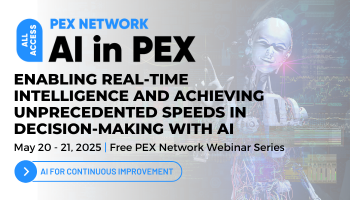6 things intelligent automation can’t do for your business
Intelligent automation can revolutionize business operations but it’s important to recognize its boundaries
Add bookmark
Intelligent automation (IA) combines artificial intelligence (AI), robotic process automation (RPA) and business process management (BPM) to help businesses streamline operations. Organizations report an average 20 percent improvement in operational efficiency following IA implementation. Advantages include workforce augmentation, improved productivity, enhanced accuracy, consistent processes, better customer experiences and compliance with regulations.
However. while the benefits of IA are compelling and the excitement surrounding its potential is understandable, there are limits to what it can realistically offer organizations. “IA has revolutionized how we approach business operations, offering unprecedented efficiency and capabilities. However, it’s vital to recognize the boundaries of what it can achieve,” Racheal Williams, CEO and founder of My AI Courses, tells PEX Network.
Cutting through the hype, here are six things IA can’t do for your business and why.
Don't miss any news, updates or insider tips from PEX Network by getting them delivered to your inbox. Sign up to our newsletter and join our community of experts.
1. Use emotional intelligence or make ethical decisions
IA improves business efficiency but it doesn’t have emotional intelligence, creative thinking or the ability to make ethical decisions, which are crucial for roles such as sales, client relationship management and product management, says Bill Moseman, head of client relationship management at Inbotiqa. “It struggles with understanding context in human communication and doesn’t adapt well to unpredictable changes with the speed of a focused human being.”
IA operates within the ethical frameworks and guidelines it is programmed with, but it cannot make moral judgments or take accountability for decisions, adds Williams. “The ethical implications of business decisions, especially those impacting stakeholders and society, still require human oversight.”
READ: 7 trends shaping intelligent automation in 2024
2. Fix customer service or build relationships
IA is not a customer service silver bullet – it might help you get to an answer/response quicker, but it doesn’t deliver attitude, culture or a friendly voice, says Peter Evans operational excellence consultant and trainer and PEX Network Advisory Board member. “You need great people and constancy of purpose to deliver that.”
One of the key areas where IA falls short is building and nurturing customer relationships on a personal level, concurs Laia Quintana, head of marketing and sales at TeamUp. “While IA can automate many tasks, it lacks the human touch that is often necessary to truly connect with customers.” For example, it can’t understand the nuances of human emotions, empathize with specific customer situations or adapt its communication style to match the customer’s tone. “This is particularly important in the fitness industry, where personal connection and understanding individual needs are crucial for customer retention and satisfaction,” Quintana says.
The cornerstone of any business is its relationships with customers, partners and employees. While IA can facilitate interactions, the depth, warmth and trust that comes from genuine human relationships are irreplaceable and essential for long-term business success, adds Williams.
3. Detect and mitigate bias
IA technology can't detect and/or mitigate biases, says Debashis Sarkar,
managing partner at Proliferator Advisory & Consulting and PEX Network Advisory Board member. “IA algorithms can inherit and perpetuate biases present in the data they're trained on. Human oversight is crucial to identify and mitigate potential biases in IA systems.”
REGISTER: All Access: Intelligent Automation 2024
4. Cure failure demand
If you think that IA will cure your failure demand (demand caused by a failure to do something or do something right for the customer) be warned – it won’t. “As with RPA and other technologies, there is a real danger we will simply make errors faster,” says Evans. “When RPA became vogue, I heard many people at conferences boasting about how many bots they had created. I fear the same with IA.” Take the time to think through “real root cause” before starting to develop, he adds. “If you don’t know that, how can you possibly know you are really improving?”
5. Be creative and strategic
While IA can generate innovative patterns and solutions within specified parameters, it lacks the capability to think abstractly and strategize outside the box. “The visionary aspect of business strategy, including innovation and long-term planning, remains a distinctly human forte,” says Williams. IA tools are designed to learn from data and improve over time, but their adaptability is limited to their programming and the data they have been trained on. “In highly volatile or unprecedented scenarios, human intervention is critical to navigate complexities and innovate solutions.”
READ: 6 free intelligent automation training courses for business leaders
6. Impart wisdom (or insight)
IA will undoubtedly give you wider and deeper access to data, but it will only take you part of the way from data to wisdom (or insight). “It may take you from data to information and maybe even knowledge, but it will need great and insightful people to do the last part,” says Evans. “I have seen so many businesses and people stop at ‘information’ and believe that is enough. It isn’t.”
As with all new tools, there is a belief that they will answer all the questions you could possibly have. “I doubt that very much; in fact, what I think will happen is it will drive new and better questions,” Evans adds. That needs ‘real’ intelligence to release the full power of the new technologies – something businesses have not been great at in the past.
All Access: AI in PEX is 2025

All Access: AI in PEX 2025 is designed to address these challenges and empower organizations to successfully integrate AI into their process improvement initiatives. The content series will bring together industry experts, thought leaders, and practitioners to share insights, best practices, and real-world case studies.
Register Now





















